Angioplasty Cost in Israel from top hospitals starts from ILS 68400 (USD 18000)approx
.Angioplasty is a minimally invasive procedure used to correct the blood flow through the artery, The blood flow may be restricted due to an obstruction or most commonly because of arterial atherosclerosis, that is, the thickening of the arterial wall because of deposits.
Angioplasty is sometimes also known as percutaneous transluminal angioplasty or balloon angioplasty. During the procedure, a thin tube or catheter is passed through the blood vessel in the groin or arm area to reach the site of narrowing or blockage. A stent or a balloon is attached to the tip of the catheter. After placing the stent or inflating the balloon, the interventional cardiologist withdraws the catheter.
There are different types of angioplasty procedures and each type has a clear indication on when it should be performed. Angioplasty cost also varies as per the type of procedure performed.
The common types of angioplasty and their indications are as follows:
Coronary Angioplasty: It is used in the case of stenosis of narrowing of the coronary artery in the heart due to plaque build-up, leading to unstable angina causing symptoms such as chest pain and functional limitations.
Peripheral Angioplasty: It is used to open the narrowing of other arteries other than the coronary arteries. Examples may include arteries in the abdomen, leg, and kidney.
Carotid Angioplasty: It is used to treat carotid artery stenosis, the main artery in the neck that supplies blood to the brain and face.
The following factors affect angioplasty cost:
| Country | Cost | Local_currency |
|---|---|---|
| Czechia | USD 8000 | Czechia 181520 |
| Greece | USD 17500 | Greece 16100 |
| India | USD 3600 | India 299340 |
| Israel | USD 18000 | Israel 68400 |
| Malaysia | USD 9500 | Malaysia 44745 |
| Poland | USD 6000 | Poland 24240 |
| South Korea | USD 18500 | South Korea 24839765 |
| Spain | USD 19500 | Spain 17940 |
| Switzerland | USD 12500 | Switzerland 10750 |
| Thailand | USD 10600 | Thailand 377890 |
| Tunisia | USD 8000 | Tunisia 24880 |
| Turkey | USD 4500 | Turkey 135630 |
| United Arab Emirates | USD 8580 | United Arab Emirates 31489 |
Treatment cost
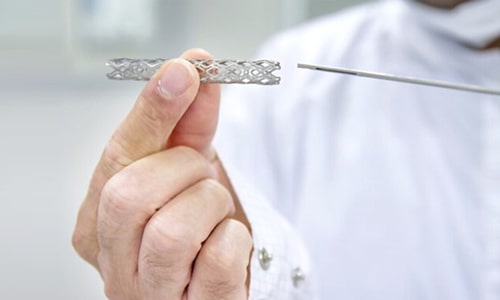
We provide numerous services for your medical journey, including:
We offer packages at reasonable pricing that include a variety of additional advantages, making it a better deal than paying for individual perks at the hospital. Angioplasty Surgery is required when a person has been diagnosed with blocked or narrowed coronary arteries. It is needed to clear the blockages and ensure restoration of normal blood flow through the vessels and arteries to the heart muscles. The procedure follows an insertion of a thin tube (a catheter) via incision in the leg or arm and guiding it to the heart. Two types of Angioplasties are there- Coronary and Balloon angioplasty. Therefore, the procedure is quite helpful to remove the obstruction or clotting., Consider this comprehensive & discounted package for Angioplasty surgery at Sharda Hospital, India.
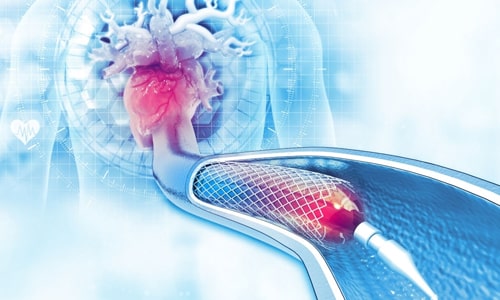
MediGence is offering immense facilities for your medical journey such as:
We offer packages at reasonable pricing that include a variety of additional advantages, making it a better deal than paying for individual perks at the hospital. Angioplasty Surgery is required when a person has been diagnosed with blocked or narrowed coronary arteries. It is needed to clear the blockages and ensure restoration of normal blood flow through the vessels and arteries to the heart muscles. The procedure follows an insertion of a thin tube (a catheter) via incision in the leg or arm and guiding it to the heart. Two types of Angioplasties are there- Coronary and Balloon angioplasty. Therefore, the procedure is quite helpful to remove the obstruction or clotting., Consider this comprehensive & discounted package for Angioplasty surgery at Pushpawati Singhania Research Institute, India.
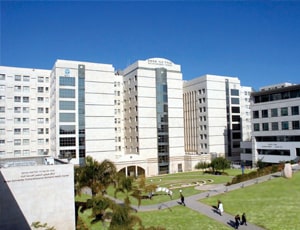
Rabin Medical Center located in Petah Tikva, Israel is accredited by JCI. Also listed below are some of the most prominent infrastructural details:
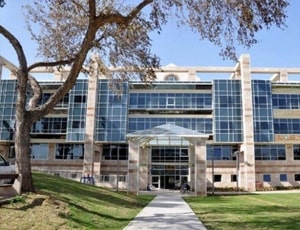
Kaplan Medical Centre located in Rehovot, Israel is accredited by JCI. Also listed below are some of the most prominent infrastructural details:
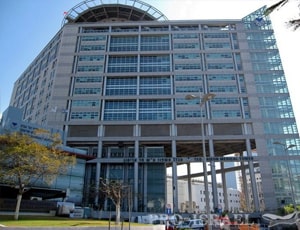
Tel Aviv Sourasky Medical Center -Ichilov Hospital located in Tel-Aviv, Israel is accredited by JCI. Also listed below are some of the most prominent infrastructural details:


Apart from in-detail treatment procedures available, Herzliya Medical Center located in Herzliya, Israel has a wide variety of facilities available for International Patients. Some of the facilities which are provided by them are Accommodation, Airport Transfer, Interpreter, SIM, TV inside room. Also listed below are some of the most prominent infrastructural details:
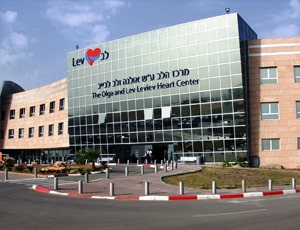
Sheba Medical Center located in Tel-Hashomer, Israel is accredited by JCI. Also listed below are some of the most prominent infrastructural details:
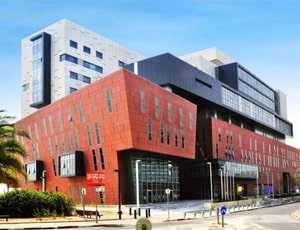
Assuta Hospital located in Tel-Aviv, Israel is accredited by JCI. Also listed below are some of the most prominent infrastructural details:
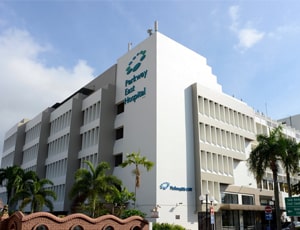
Parkway East Hospital located in Joo Chiat Pl, Singapore is accredited by JCI. Also listed below are some of the most prominent infrastructural details:
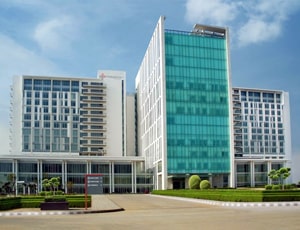
Types of Angioplasty in Medanta - The Medicity and its associated cost
| Treatment Option | Approximate Cost Range (USD) | Approximate Cost Range (INR) |
|---|---|---|
| Angioplasty (Overall) | 2846 - 6825 | 227416 - 551175 |
| Coronary Angioplasty (PCI) | 4093 - 6861 | 336465 - 560520 |
| Peripheral Angioplasty | 3344 - 5542 | 280602 - 465751 |
| Balloon Angioplasty | 2817 - 4481 | 231626 - 365514 |
DOCTORS IN 14 SPECIALITIES
FACILITIES & AMENITIES
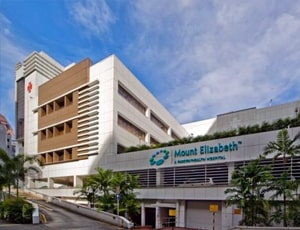
Mount Elizabeth Hospital located in Singapore, Singapore is accredited by JCI. Also listed below are some of the most prominent infrastructural details:
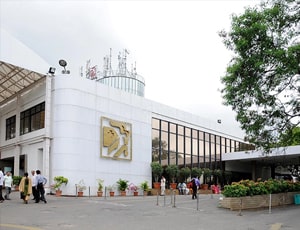
Types of Angioplasty in Apollo Hospitals and its associated cost
| Treatment Option | Approximate Cost Range (USD) | Approximate Cost Range (INR) |
|---|---|---|
| Angioplasty (Overall) | 2809 - 6707 | 234977 - 556673 |
| Coronary Angioplasty (PCI) | 4038 - 6862 | 325439 - 561515 |
| Peripheral Angioplasty | 3394 - 5707 | 275628 - 458912 |
| Balloon Angioplasty | 2785 - 4445 | 232806 - 364115 |
DOCTORS IN 14 SPECIALITIES
FACILITIES & AMENITIES
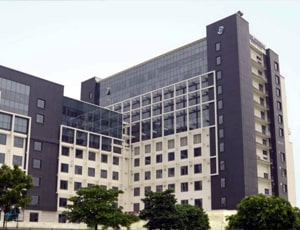
Types of Angioplasty in Venkateshwar Hospital and its associated cost
| Treatment Option | Approximate Cost Range (USD) | Approximate Cost Range (INR) |
|---|---|---|
| Angioplasty (Overall) | 2550 - 6113 | 208614 - 497880 |
| Coronary Angioplasty (PCI) | 3641 - 6077 | 300040 - 500366 |
| Peripheral Angioplasty | 3047 - 5057 | 250332 - 417474 |
| Balloon Angioplasty | 2534 - 4055 | 207905 - 332715 |
DOCTORS IN 13 SPECIALITIES
FACILITIES & AMENITIES
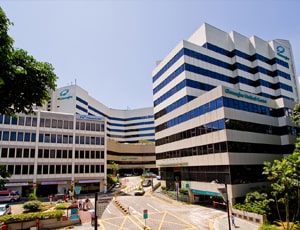
Gleneagles Hospital located in Napier Road, Singapore is accredited by JCI. Also listed below are some of the most prominent infrastructural details:

Types of Angioplasty in Star Hospitals and its associated cost
| Treatment Option | Approximate Cost Range (USD) | Approximate Cost Range (INR) |
|---|---|---|
| Angioplasty (Overall) | 2318 - 5659 | 193198 - 456893 |
| Coronary Angioplasty (PCI) | 3398 - 5611 | 275956 - 462126 |
| Peripheral Angioplasty | 2820 - 4674 | 229343 - 380978 |
| Balloon Angioplasty | 2320 - 3790 | 190288 - 305544 |
DOCTORS IN 12 SPECIALITIES
FACILITIES & AMENITIES

Types of Angioplasty in Global Health City and its associated cost
| Treatment Option | Approximate Cost Range (USD) | Approximate Cost Range (INR) |
|---|---|---|
| Angioplasty (Overall) | 2753 - 6745 | 232671 - 544516 |
| Coronary Angioplasty (PCI) | 4044 - 6642 | 336523 - 560469 |
| Peripheral Angioplasty | 3315 - 5635 | 275082 - 471475 |
| Balloon Angioplasty | 2823 - 4440 | 231582 - 362692 |
DOCTORS IN 14 SPECIALITIES
FACILITIES & AMENITIES
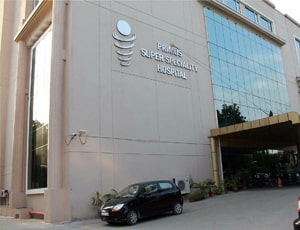
Types of Angioplasty in Primus Super Speciality Hospital and its associated cost
| Treatment Option | Approximate Cost Range (USD) | Approximate Cost Range (INR) |
|---|---|---|
| Angioplasty (Overall) | 2549 - 6100 | 208919 - 499214 |
| Coronary Angioplasty (PCI) | 3647 - 6063 | 298940 - 497303 |
| Peripheral Angioplasty | 3031 - 5089 | 248519 - 414829 |
| Balloon Angioplasty | 2528 - 4066 | 208720 - 333622 |
DOCTORS IN 13 SPECIALITIES
FACILITIES & AMENITIES
Coronary artery disease (CAD) is one of the most common heart diseases reported across the world. It results due to blood clot formation and plaque accumulation in the major blood vessels of the heart.
Balloon angioplasty is the most common endovascular procedure (procedure performed inside the blood vessel) carried out to treat coronary artery disease. In this procedure, the blood clots in the major arteries of the heart are detected and cleared by inserting a catheter into an artery of the hand (radial artery) or leg (femoral artery). This catheter consists of a balloon at its tip, which dislodges the clot to the periphery of the blood vessel after inflation.
Angioplasty may or may not be followed by coronary stent placement, depending on the angiography findings. This procedure is performed in patients with fewer blood clots in the vessels and those who do not respond to medications. It may also be carried out as an emergency procedure to treat a heart attack.
Step 1: Placing the patient on oral sedatives
Step 2: Administration of general anaesthesia
Step 3: Incision at the femoral artery or radial artery
Step 4: Insertion of catheter into the artery through an incision
Step 5: Guiding the catheter up to the base of the coronary artery
Step 6: Insertion of a guidewire from within the catheter into the artery up to the site of the blood clot
Step 7: Insertion of contrast dye through the catheter
Step 8: Checking for the blocks through a radiograph
Step 9: Identifying the pinpoint location of the blood clot
Step 10: Passage of guide wire through catheter just beyond the region of clot
Step 11: Inflating and deflating the balloon till normal blood flow is obtained from the vessel
Step 12: Stabilizing the stent in place
Step 13: Retrieving the catheter
Contraindications: You may not be suggested to undergo balloon angioplasty if the access vessel (femoral or radial artery) is of insufficient size and quality.
Recovery time: You will be discharged from the hospital in one day. But you should avoid strenuous activities for one month after being discharged from the hospital.
Prognosis: According to research, 79 percent of the people who receive the stent after a balloon angioplasty are relieved from angina for up to 5 years.
Ask your healthcare adviser for the best multiple options and choose the one that meets your expectations
USD 18000 is the starting cost of Angioplasty Surgery in Israel. There many JCI certified hospitals in Israel that offer Angioplasty
Angioplasty package cost in Israel has different inclusions and exclusions. The cost quoted by some of the best hospitals for Angioplasty in Israel generally covers the pre-surgery investigations of the patient. The Angioplasty cost in Israel includes the cost of anesthesia, medicines, hospitalization and the surgeon's fee. There are many things that may increase the cost of Angioplasty in Israel, including prolonged hospital stay and complications after the procedure.
There are many hospitals that perform Angioplasty in Israel. Some of the most renowned hospitals for Angioplasty in Israel include the following:
The recovery of the patient many vary, depending on several factors. However, on an average, patient is supposed to stay for about 18 days in the country after discharge. This period is important to conduct all the follow-up tests to ensure that the surgery was successful and the patient can go back to the home country.
Apart from the Angioplasty cost, the patient may have to pay for additional daily expenses such as for guest house after discharge and meals. The per day extra expenses in Israel per person are about USD 50 per person.
There are many cities that offer Angioplasty in Israel, including the following:
After Angioplasty, the patient is supposed to stay for about 2 days in the hospital for recovery and monitoring. During the recovery, the patient is carefully monitored and control tests are performed to see that everything is okay. If required, physiotherapy sessions are also planned during recovery in hospital.
There are more than 6 hospitals that offer Angioplasty in Israel. These hospitals have propoer infrastructure as well as offer good quality of services when it comes to Angioplasty These hospitals comply with all the rules and regulations as dictated by the regulatory bodies and medical association in Israel
Some of the renowned medical specialists for Angioplasty in Israel are: